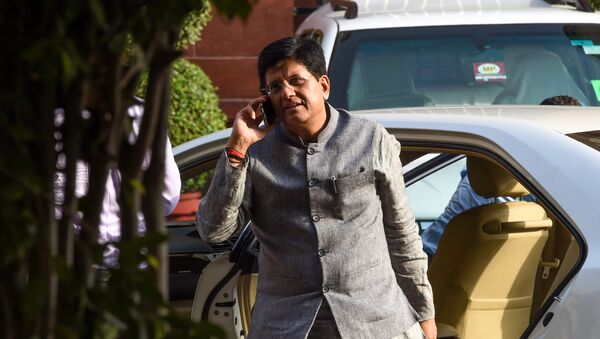The Indian government on Friday said it aims to create a fully computerised and integrated intellectual property rights (IPR) office in the country similar to the model that exists in the US.
Addressing members of the Rajya Sabha, the upper house of the parliament, Indian Commerce and Industry Minister Piyush Goyal said: "All of these (IPR-related services) are synergised into one office now. We are in the process of computerising every process so that people don't have to go to any IPR office whatsoever."
The government has already reduced IPR-related charges for start-ups, artisans and women entrepreneurs. Simultaneous steps are being taken to protect traditional Indian knowledge as well, the minister said.
“In the whole of the US, there is one IPR office and everybody works online. I am trying to develop that model here. With smartphones proliferating all over India, the government wants to ensure rural artisans and craftsmen engage directly online through video conferencing and get advice on patent-related issues free of cost,” he said.
After deciding on a roadmap, the Narendra Modi government is now conducting a more detailed analysis to take the process forward, he added.
India’s National Intellectual Property Rights (IPR) Policy was adopted on 12 May, 2016. In the last three-and-a-half years, the government’s Department of Industrial Policy and Promotion has taken steps to strengthen the institutional mechanism to ensure an integrated approach and synergy between different IP offices and laws.
It has also taken measures to clear the backlog and reduce pendency (patent applications pending for examination has been reduced from 197,934 at the end of March 2016 to 139,274 at the end of October 2018), besides introducing the automatic issuance of electronically generated patent and trademark certificates, seeking to increase patent filings etc.
Nearly 200 international Memoranda of Understanding have been vetted from an IPR angle in the past year and India has acceded to the WIPO Copyright Treaty (WCT) and WIPO Performances and Phonograms Treaty (WPPT), which extend coverage of copyright to the internet and digital environment.


